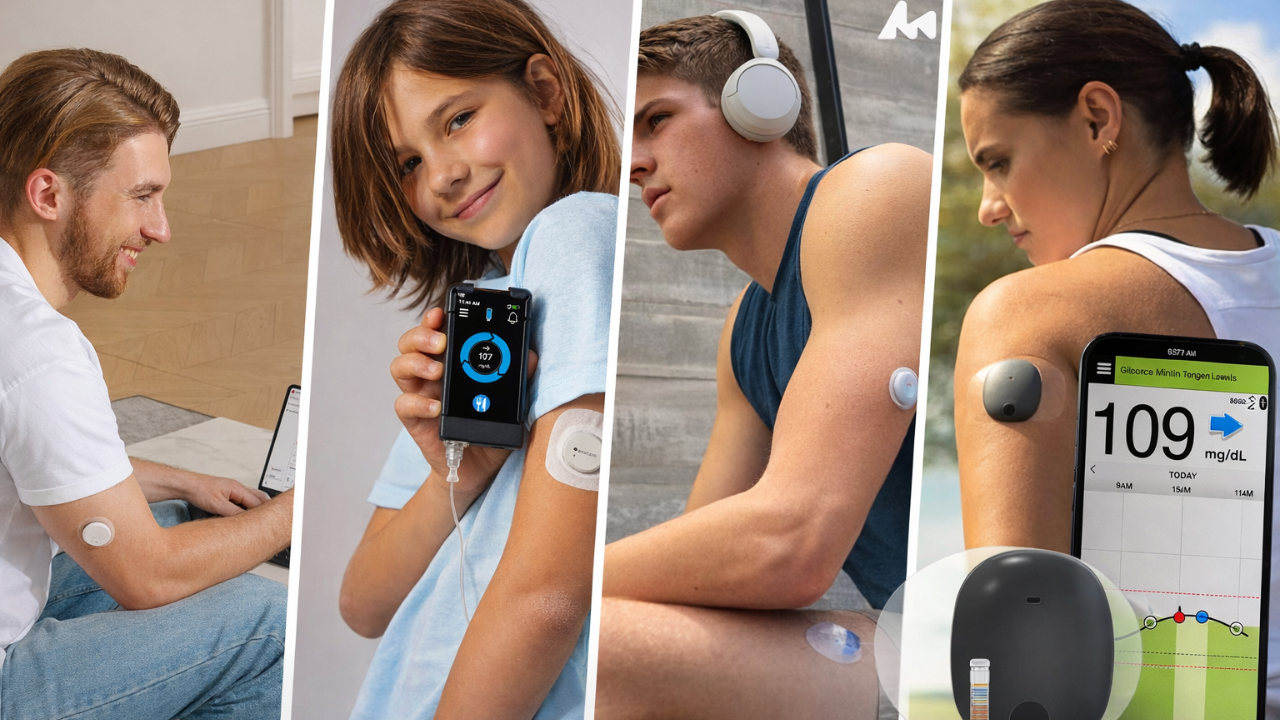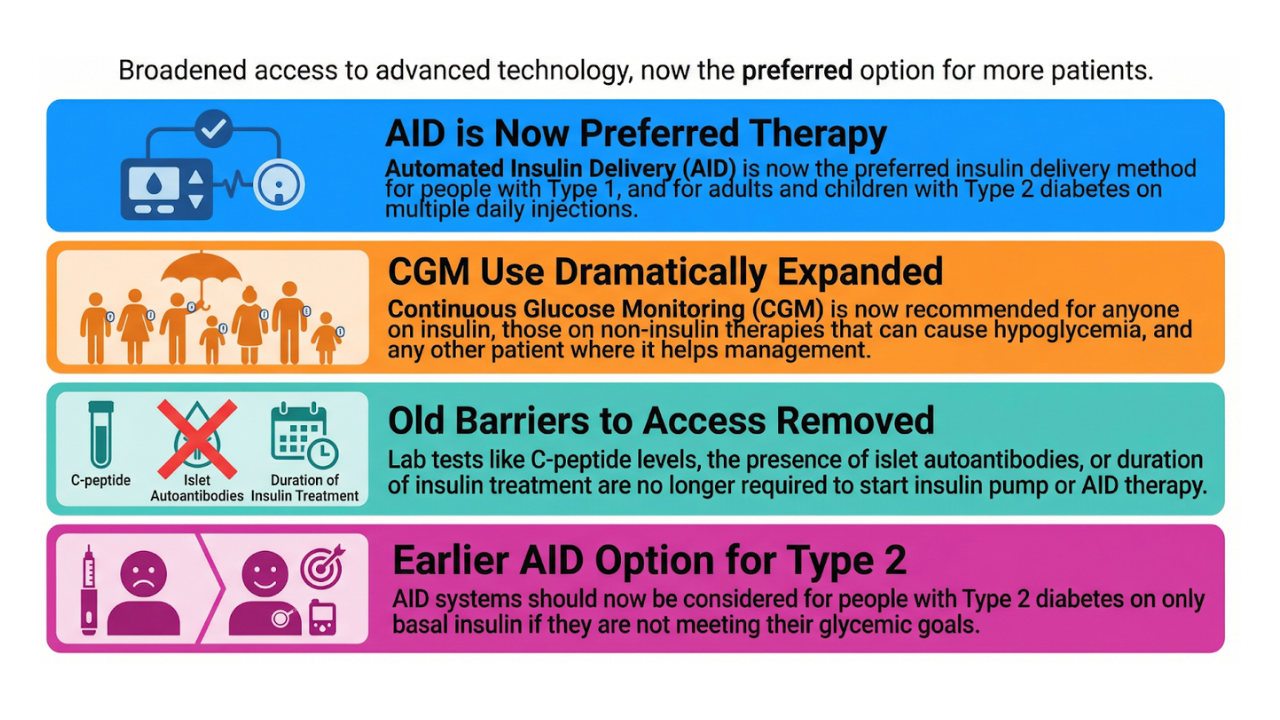Interview: Exploring the Future of Diabetes Technology with Prof. Lutz Heinemann
Feb 19, 2024
Have you ever wondered if diabetes technology is just a hype?
Are these glucose sensors and insulin pumps worth raving about, or are they just a small drop in diabetes care, and will they be of no real significance in a few years?
My personal interest has grown enormously in the last 3 years, and I just love how great these devices are.
But what do other people think? How about somebody with 30 years of experience in diabetes care and somebody who witnessed the evolution of diabetes technology from the beginning?
Wouldn’t it be great to look into the head of these diabetes tech veterans and learn what they think of the future and how they experience the current evolution?
That’s why for this blog post we did an interview with Prof. Lutz Heinemann.
Get Access To Updated Diabetes Technology Courses
He is one of the most involved veterans in diabetes technology. He graduated as an engineer in 1976 in Dusseldorf and qualified as a Biologist in 1982. He worked until 1999 with Prof. Michael Berger, the former president of EASD, at the Clinic for Nutrition and Metabolism. In 1999, Professor Heinemann founded together with Tim Heise, the Profil Institute for Metabolic Research in Neuss, Germany, where he remained as CEO until 2009.
Professor Heinemann is a member of the German Diabetes Association (DDG), the European Association for the Study of Diabetes (EASD) and the American Diabetes Association (ADA). He also sits on the Scientific Advisory Boards of various companies, including Diabetotech. Since 2011, he has been the Managing Editor of the Journal of Diabetes Science and Technology.
Professor Heinemann’s scientific research is focused on insulin pharmacology and diabetes technology. Between 2010 and 2015, he acted as coordinator for the EU-funded project AP@home. In 2007 he received an award for “Leadership in Diabetes Technology” from the Diabetes Technology Society and, in 2012, was granted the “Artificial Pancreas Research Award” by the Diabetes Technology Society.
Want to know what Prof. Heinemann thinks of diabetes technology and what he sees for the future?
Read on!
Question 1
"What concerns you most about the future of diabetes care?"
So, what a tricky question, but I think all questions are tricky. I have different aspects that concern me.
Let's say the first one is the costs.
I am a big believer in diabetes technology, and I also believe that many, if not all patients really are supported by modern diabetes technology. The issue is if you have a lot of light, you also have shadows. One of the shadows is that, probably not for all countries, but for a number of countries, the increase in costs by an additional usage of CGM systems, AID systems, insulin pumps, you name it, is a hurdle, a barrier, an obstacle, a no go probably in some countries.
For people that are wealthy enough to pay off their pockets, no problem at all. However, especially for poor people or also in poor countries, the price level of many of the products is still an issue. They know that they could live a better life with an AID system. However, the cost level of several thousand euro or dollar per year is a barrier. So costs are an issue.
And also, for rich countries like Germany, the increase of the expenses for the insurance companies or sick funds is so drastic. If you see the increase in business of Abbott, Medtronic, Dexcom, you name it. It's nice for the companies, but it's an issue for the health care systems. I'm not sure how this will continue. There will be blockages.
I'm relatively sure if you see the increase in the sales of these companies, this cannot continue that way for obvious reasons.
One of the other aspects that is closer to my heart is if you sell more of these products, you generate more waste.
All of these products come in nice boxes. They come with leaflets about instructions for use, how to use it and so on. Then they have the product itself and its packaging. And a lot of this, at the end, all of it goes into the waste bin.
The design of the product is not made in a way that it's easy to recycle them, that you use materials that are also for the patients, easy to understand which part of the plastic material goes into which bin and so on.
I know that for patients, it's nothing they consider when they make their product decision, at least not yet, but that they are unhappy about the amount of waste they're generating for their diabetes therapy.
I think this is another topic I believe, together, let me say it again, together with the industry, we should have a look at how to reduce it.
The inserter, that's one of my favorite examples. The inserter of a CGM system has 60, 80 grams of plastic that you use once and then you throw it away. These inserters are designed perfectly. They work nicely and so on and so on. However, why can you not use them repeatedly?
Just as an idea, you should not use them, I don't know, a hundred times, but probably 10 times and this would reduce the amount of waste a lot.
We just performed a study in Germany where we evaluated how much waste is generated. We're not going into details right now, but it's interesting to see how many bags patients fill with their diabetes technology waste within weeks and months.
I think that's another topic that concerns me about the future of diabetes care.
And one other topic, is at least in countries like Germany and to my understanding, also in the US, the number of physicians with a focus on diabetes is decreasing.
It's somewhat a dilemma. It's difficult to understand because the number of patients is increasing, but the number of young physicians who like to work with patients with diabetes is decreasing.
So, we have an age shift.
We analyzed the age of the treating diabetologists in Germany in a survey each and every year for the last six years, and we see that their mean value is 57 years of age now, I think. So you can envisage that in 10 years time, there will be not too many diabetologists around treating the much higher number of patients.
I think three concerns are enough for the moment. Thank you.
Inge: You say that the costs are so high. And on the other hand, I hear a lot of physicians saying that these devices are cost effective. Do you believe they're not cost effective?
Lutz: They are cost effective for the individual patient, don't get me wrong, but even if they are cost effective, see, the sheer number of patients, especially with type 2 patients, is too high.
- I think type 1 is easy, but this is a relatively small number. If we talk about Germany, we talk about, I don't know, 400 000, 450 000 patients, done. I think this is something the healthcare system can handle.
- When we talk about the 8 or 10 million patients with type 2 diabetes, probably also some with pre diabetes, that might benefit from using CGM. The number is much too high. If you think only about the 2, 3, 4 million and multiply then the costs with it. These are billions of euro each and every year.
So for the given patient, there is a cost effectiveness, no doubt.
But the total sum of the cost might be prohibitive.
Question 2
"What excites you most about diabetes care in the near and distant future? What is the most fun?"
Most fun is clearly the availability of different AID systems.
I think this is obvious, this is such a help for patients in daily life.
It's not a cure for diabetes. It's not the holy grail. But it comes close to it.
It reduces the burden in daily life so much for patients. I think this is one of the most positive things.
And as I tried to indicate before, clearly the different technologies that we have seen coming up have helped the patients a lot to live a more normal life.
Which does not mean that all of them have an optimal HbA1c and so on, because the patients have a tendency to use the devices, the technology in a way that supports them in the individual approach to diabetes care, which can differ from the view of the treating physician or diabetes team.
The patient reported outcome is improved.
The patients say, oh, I can continue to work, I can live a normal life, I can have a party with my neighbors without thinking about diabetes therapy all the time, and so on.
So I think this is a very positive aspect of diabetes care.
Thinking a little bit ahead about dreams and I think this is probably the point in time where you can dream.
If we would have smart insulins, I think this would be a game changer.
If you would apply 10 000 units of insulin in a depot in the abdomen and if blood glucose increases, the appropriate amount of insulin is then coming out of this depot and lower blood glucose into the right level.
Then we would get rid of a lot of technology.
People like I can really retire then.
But I think this would be the dream, so to say.
There is ongoing development. There are a lot of patents. The big boys are working on it.
Do I believe that these products will be approved? Yes, but in the next, I don't know, five years.
The risk, on the other hand, if for some reason those 10 0000 units would get released at once, okay, then you need a new patient because this one is dead. Because then you would have to have an IV glucose infusion for days, weeks, I don't know, until the depot insulin, which is then set free, is handled.
But, um, that's just a regulatory concern, it would be a dream.
Inge: So although you don't think it will happen, you dream that it will happen.
Lutz: I have not said that I believe that it will not happen, but this is something in 5, 10 years' time.
Inge: And then you think it's possible.
Lutz: Yeah. But be careful. This is a typical statement of people who, if you don't know, you say in 5 years' time, you don't say in 2 years' time.
Question 3
"What do you consider to be the strengths of a diatec and/or the other companies you have founded or co-founded?"
You have to see my background. I'm an engineer and biologist, I'm not a physician. I never treat patients. And I have an academic background and I still have a lot of ties into the academic structures. I'm editor of a journal, I have clear academic interests, a lot of the things I'm doing, I'm not doing for money, my wife's always shaking her head about me.
And diatec, for example, why is the atmosphere so intense at diatec?
I think this has a lot to do with people like my colleagues from the diateam, my wife and myself. If you look at me, I'm not dressed as a typical business guy. I'm also at these meetings not running around with a tie or something like this.
It's a relatively simple setup.
It's not a high-end hotel. It's not fancy. It's back to earth.
And we are critical.
We are not overly critical, but we are also touching on sensitive aspects.
And this is something I was trained by my former boss, Michael Berger. And Michael was a critical guy.
But his major aim was also to improve the life of patients with diabetes.
My aim is not to improve the sales numbers of company XYZ. It's to support patients, in cooperation with the industrial partners and with other groups.
I think one of the aims that we have with diatec and also with the other activities is to have a kind of platform where people can interact with each other in a friendly atmosphere, but at the same time discuss seriously critical aspects.
But at the same time, it doesn't make sense to bash companies, bashing is of no help.
Because these people also want to make their living and to say, Oh, the industry is terrible. That's too simple. They have helped the patients and the physicians a lot.
So I see constructive interaction as the way forward.
Question 4
"If we were meeting three years from now, what needs to have happened for you to feel happy with the progress that you've made for yourself, with your companies or in diabetes care in general, what would make you happy?"
If I can get rid of a lot of the activities that I have in order to spend more time with my grandchildren, with my wife, with my kids, with my bike riding and other things.
I'm turning 70 in two months from now and as there is a need for elderly gentlemen like myself to say enough is enough. I hope that in three years' time I can attend such meetings, but I have no business to do anymore. So that's a very personal comment.
From a more scientific point of view, I assume a question goes into this direction.
I think what we have right now is more or less fine for me.
I think you can always say, okay, it can be better there and there a little bit. But on the other hand, I think sometimes we tend to forget how well most people, most patients with diabetes are doing today.
So clearly, we see an increase in AID systems. But these are tendencies that are there.
I see no fundamental aspects that should be changed within the next two, three years, from my point of view.
I might be biased, I might be too close with my nose to many of these activities, but I'm looking forward with a positive touch to it.
Inge: I assume you want to continue the diatec meetings and the diatec weekly newsletter, or how will it move forward?
Lutz: Yes. I don't know if you have seen it, but this year it was not Science Consulting, a small consulting company my wife and I have, who has organized the diatec. It was diateam, that's a small company that some colleagues of us from Bad Mergentheim, namely Bernhard Kulzer, Norbert Hermanns, Dominic Ehrmann and my wife and I established last year.
The idea is that in the next years, we, that means Gaby and myself can step back; however we will continue to support the activity. But it will not be us in person, we have to stand in front all the time. Like I indicated in my little introduction here, I don't take myself as personally as so important, like some of my colleagues, that I have to continue until I'm 80 or so.
I think there is a need to step back and give younger people the room, the space. You can support these activities, but you must not be in the front.
So, but diatec Weekly, in contrast, my wife and I like it so much that we might continue to do this weekly newsletter for some more years.
I would not say endlessly, but for some time, because it keeps us connected and we have a lot of impact, so to say, to our understanding. Because if we make a statement in the weekly, people are reading it and reacting to it.
Conclusion
As we conclude this insightful interview with Professor Lutz Heinemann, we've gained valuable insights into the current state and future prospects of diabetes care.
From the concerns surrounding rising costs and environmental impact to the exciting advancements in automated insulin delivery systems, Professor Heinemann's perspective offers a comprehensive view of the challenges and opportunities in the field.
Looking ahead, Professor Heinemann envisions a future where constructive collaboration between industry, academia, and healthcare professionals drives innovation while prioritizing patient well-being.
He emphasizes the need for continued dialogue and critical assessment to ensure that advancements in diabetes technology truly enhance the lives of those living with the condition.
In closing, we extend our gratitude to Professor Lutz Heinemann for sharing his expertise and vision with us.
His dedication to advancing diabetes care serves as an inspiration to us all, reminding us of the importance of innovation, collaboration, and above all, putting patients first.
If you're interested in staying updated on the latest developments in diabetes technology and research, don't forget to subscribe to diatec Weekly, the newsletter of Prof Heinemann and his wife Gaby.
Although the blog is in German, most browsers and email providers now have an automatic translation feature, making it accessible to a wider audience.
▶️ Click here to subscribe and continue your exploration of diabetes care innovation. ◀️
Kind regards,
Inge




